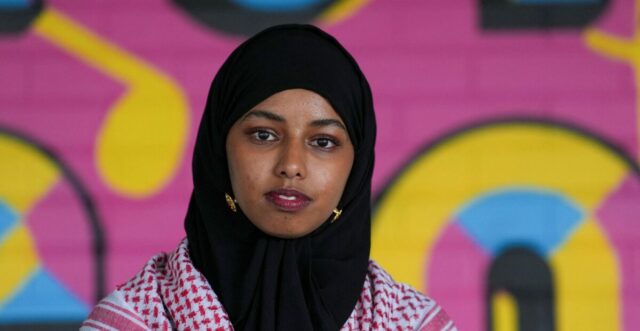Muslim women in Britain have enrolled for self-defence classes, amid riots and unrest.
Self-Defence Classes
Maya Hassan, a martial arts expert has reached out to Muslim women as also those from ethnic minorities, to learn self-defence.
The 28-year-old martial arts expert looks on with pride as around 30 women, mostly Muslims and from ethnic minorities, join a self-defence class.
She organized this class at a London sports ground, in response to a wave of riots where Muslims and migrants faced violent and racist attacks.
The riots have largely targeted migrants, Muslims, and Asian people, spreading fear through ethnic minority communities.
Empowering Women Of Colour
Maya is determined to help women of colour to learn how to deal with abuse and build connections and confidence.
This initiative is praiseworthy as U.K. has faced more than a week of unrest aimed at mosques, asylum seeker hotels and the police.
Maya said, “It gives you a little bit more confidence.’’
“You kind of know what to look for, how to be socially aware, how to spot things and how to get out of a really bad situation.”
Muslim and ethnic minority communities have expressed shock over the disorder sparked by false information online regarding the identity of the suspected killer of three young girls.
It said that an Islamist migrant was behind the knife attack in Southport, northwest England.
Good Response To Self-Defence Classes
Martial arts instructor Stewart McGill said he had seen more women signing up for classes since the unrest started.
He told them how to defend themselves with tactics including kicks and impromptu weapons such as belts.
Self-Defence Training Is Useful
Significantly, Elza Annan, a 24 year-old lady said she felt more confident after attending the classes.
“I obviously don’t want to have to use these techniques but it is useful and beneficial to have them.’’
Elza said that the classes are important as in recent incidents, far-right racists have come out and targeted people of colour.
Tell MAMA UK, a group that monitors anti-Muslim incidents, said hate directed at Muslims was growing in Britain for some time.
The group said that hate increased especially after October 7 last year, the start of the conflict in Gaza.
Since the riots began, it had received more than 500 calls and online reports of anti-Muslim behaviour across Britain.
The riots have largely stopped since thousands of anti-racism protesters turned out to protect potential targets.
Targets
Those targeted include Immigration advice centres, mosques, and hotels housing asylum seekers.
Maya Hassan’s background
Hassan, who wears a hijab and is a Swiss national of Somali origin, moved to Britain in 2008.
She felt that London was more welcoming to ethnic minorities than many parts of Europe.
She wants to organize more classes.
A similar event was planned for Manchester, northern England.
The Three Hijabis, a campaign group, has held a large online conference call with Muslim women
The group intends to discuss the psychological impact of Islamophobic violence.
Shaista Aziz, the group’s director, said some women feared that the violence could unleash confrontations or abuse and prompt many to stay close to home.
“Today I advised a sister I dearly love to consider removing her hijab to stay safe as she travels through the Northeast …” she said on X.
Steps Taken By Keir Starmer
Prime Minister Keir Starmer, who has ordered extra protection for the Muslim community, described rioters as “far-right thugs”.
So far, the authorities have arrested almost 800 people.
The anti-racism protests are likely to continue.
For Maki Omori, 23, who identifies as non-binary, Saturday’s class would help prepare for counter protests.
Omori said. “I want to make sure that if something happens, I feel ready.”
(With Inputs From Reuters)
Delhi based journalist pickled in journalism. Have reported from nine world capitals and almost all parts of India. Over the last three decades, I have worked for India’s mainstream English dailies and contributed to All India Radio, Doordarshan and Women’s Feature Service. Also worked for international media including Japan’s leading newspaper, The Asahi Shimbun and done assignments for The Sunday Times, London, The Telegraph, The Guardian and the Canadian Broadcasting Corporation. Worked in the Embassy of France in New Delhi and can speak French to save my life. Write on Diplomacy, Politics and the social sector. Love Nature, heritage, Nature, animals and vintage cars. Enjoy cycling and playing badminton.





